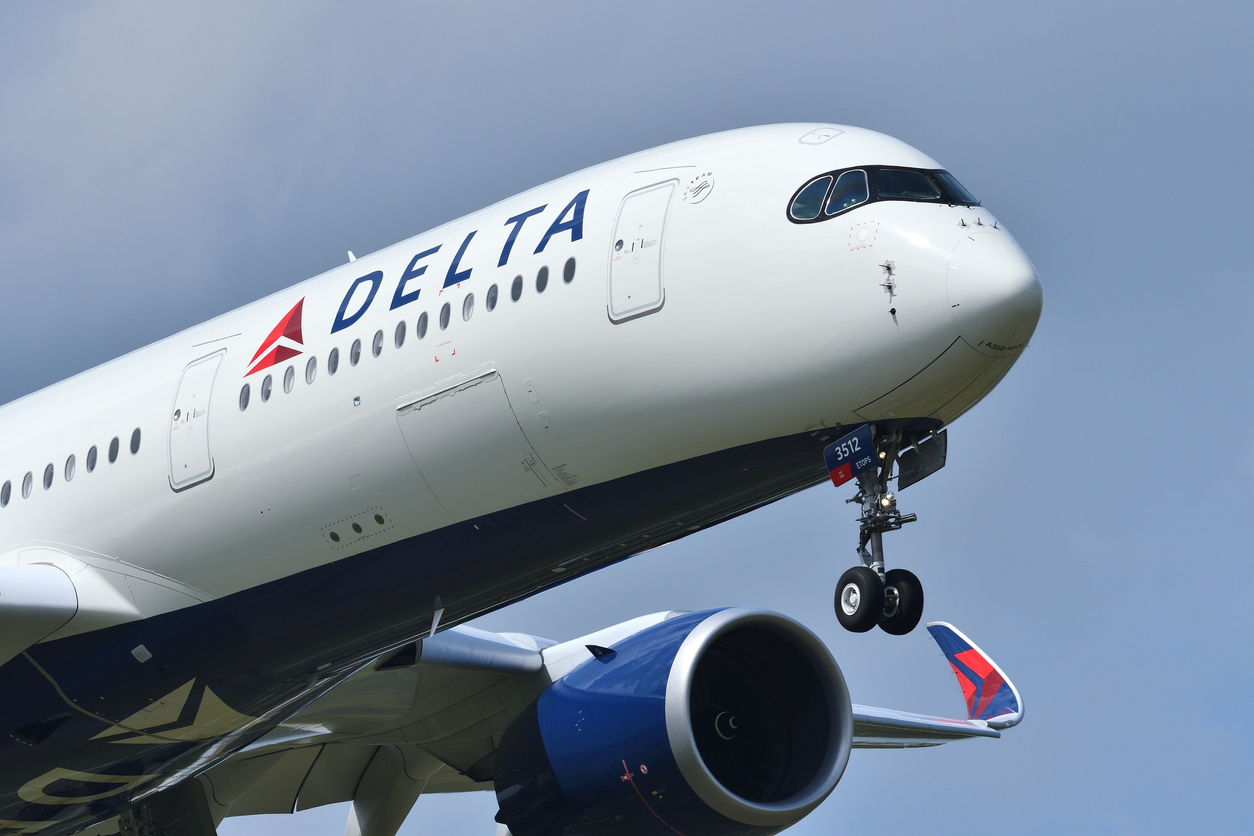Thousands of pilots for Delta vote to strike, the role of the chief remote officer
Plus, how to turn your employees into advocates.

Greetings comms pros! Let’s look at some news stories from the last week and see what we can learn from them.
- Thousands of Delta Airlines pilots vote overwhelmingly to authorize a strike
Nearly 15,000 Delta pilots voted to go on strike after negotiations for a new contract were put on pause.
The pilots, who are represented by the Air Line Pilots Association union, last negotiated their contracts in 2016. Renegotiation started in April 2019 and the employees and airline had entered the mediation stage in February 2020 but was postponed due to the pandemic. Renegotiations resumed in January.
“Today, Delta’s nearly 15,000 pilots sent a clear message to management that we are willing to go the distance to secure a contract that reflects the value we bring to Delta Air Lines as frontline leaders and long-term stakeholders,” Capt. Jason Ambrosi, chairperson of the Delta Master Executive Council, said in a release.
While this isn’t the first-time airline groups have agreed to go on strike, there’s something notable comms pros can glean from this situation. When you’re communicating with employees, particularly unions, organizations need to listen to the needs of employees and work to make their work situations as amenable as possible. The lesson here is that if you’re aware of what your employees want, you can work with them to help them achieve it and avoid bad press like this.
2. The rise of the ‘chief remote officer’
With the many changes in workplace duties and situations during the course of the pandemic, a new one has arisen — the chief remote officer.
Figuring out remote work has been a challenge for employers, whether they opt for a hybrid-working pattern or fully distributed teams. In response, some companies have created new positions to help navigate the changing work landscape. This has notably been happening in tech, which has a predominantly higher share of remote workers and firms that embrace digital-first processes.
One such case is Atlassian. The Australia-founded collaboration-software company, with nearly 10,000 employees across 13 countries, has been fully remote since the pandemic began. However, it created a new executive role in March 2022 to formulate its longer-term plan. “Building a transformation team around remote is often reactive: it’s looking at it as a problem to solve,” says Annie Dean, who leads the company’s global distributed workforce strategy, based in New York City. “But because we’ve resourced a team and taken this seriously, most of my work is proactively solving challenges for the future.”
Dean oversees a 100-strong collective scattered throughout Atlassian to fine-tune its remote processes: from the workplace experience team operating the office development and design for whenever workers choose to be in person; to the recruitment team shifting hiring policies and procedures in line with a fully distributed model, such as global recruitment; to the product team flagging issues with remote working generated by day-to-day collaboration tools. “How I prioritise work for these teams is focusing on the biggest challenges and opportunities in transitioning the organisation to a distributed-first model,” she adds.
In a world of remote work, it’s refreshing to see that some organizations are rethinking the way that they’re structured in order to oversee and provide resources to those working far from the office. Remote work isn’t going away, and it’ll be interesting to see if more companies promote people to oversee how work-from-home is organized and maintained.
3. How can you turn your employees into your biggest advocates?
Sometimes, the best cheerleaders for your company can be within your organization.
Tom Gibby for Forbes Business Council says:
Employee advocacy is essentially the practice of having employees promote your business and share messages that talk up the business to their own social base and peer group. The benefits of doing this are manifold: Your brand can spread to audiences previously untouched, which can drastically amplify your coverage.
Employees are only likely to be advocates if they’re having a good time working for you, so a prime place to start in order to improve the employee experience is focusing on boosting engagement. Making employees feel heard and valued is a good way of fostering an emotional connection between the employee and employer, which, in essence, is what engagement is all about. A big challenge in today’s post-pandemic hybrid work structure is alienation.
In distributed teams, employees from different departments don’t always have an accurate idea of what other team members do and are working in silos. Based on my observations, this is most prevalent in rapidly growing remote companies. To remedy this, make an effort to help staff feel more connected to one another as well.
For example, you can allow them to use your workplace’s platform to interact with colleagues without agendas or having to discuss work. Encouraging staff to build team relationships and discover one another’s roles within the company enlightens understanding and helps to build appreciation among employees. I believe working in a company with strong cross-sectional relationships among departments is something employees want to shout about. And why not? Good workplace culture is not always easy to come by.
When you’ve got happy employees, of course they’re more likely to brag about where they work! That’s simple! The difficult part is figuring out how to make them feel like they want to boast about their jobs in a real, genuine way. Relationship building at all levels of an organization and showing real, true care for employees both inside and outside work is so key to developing a robust culture. Is it easy? Not always. But culture is such a critical aspect of any modern organization that it’s worth thinking about.
4. How about some good news?
- A study finds that people who walk faster reap health benefits
- An ancient Roman road was discovered in Britain
- The White House gardener marked 50 years on the job
- Ragan Training is a great place for communications pros to find inspiration and resources.
- You should be rewarded for your work. Find out how to earn an award here!
Have a great weekend, comms all-stars!
Sean Devlin is an editor at Ragan Communications. In his spare time he enjoys Philly sports, a good pint and ’90s trivia night.
COMMENT
Ragan.com Daily Headlines
RECOMMENDED READING
Tags: communications







